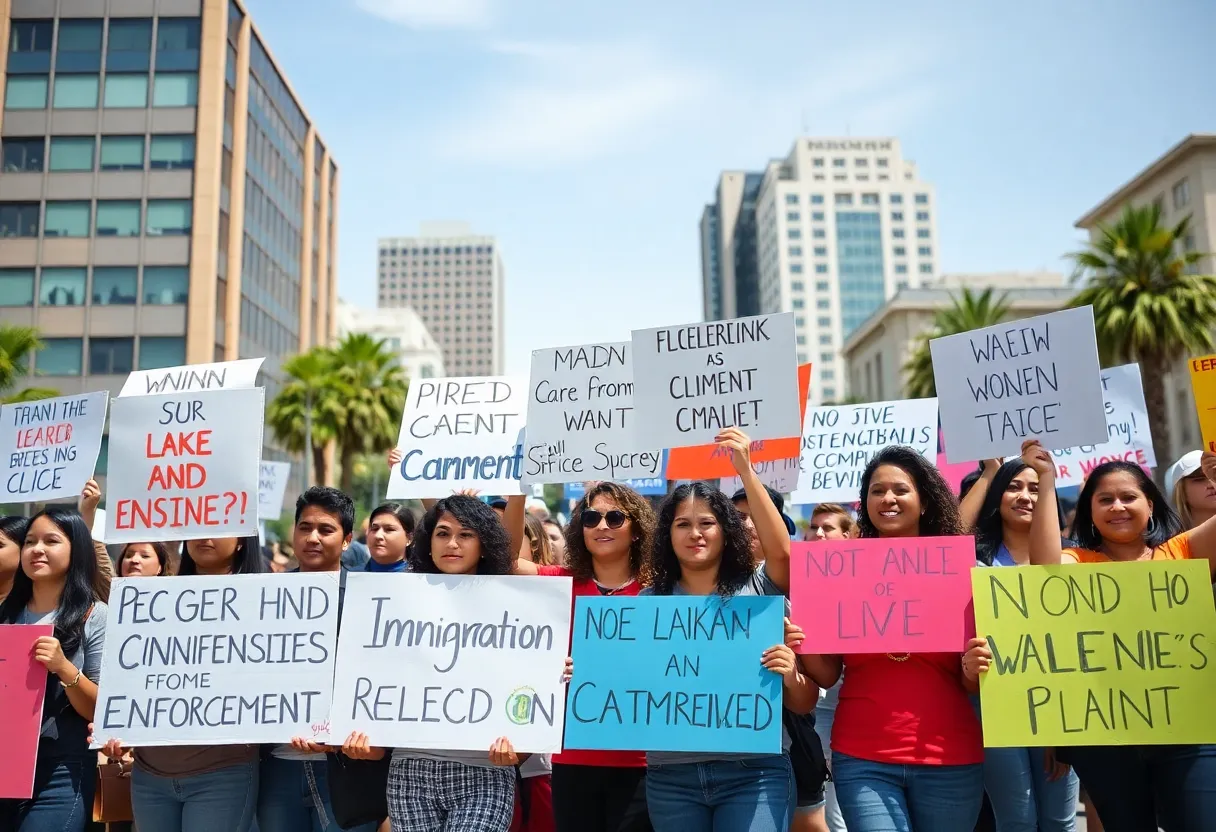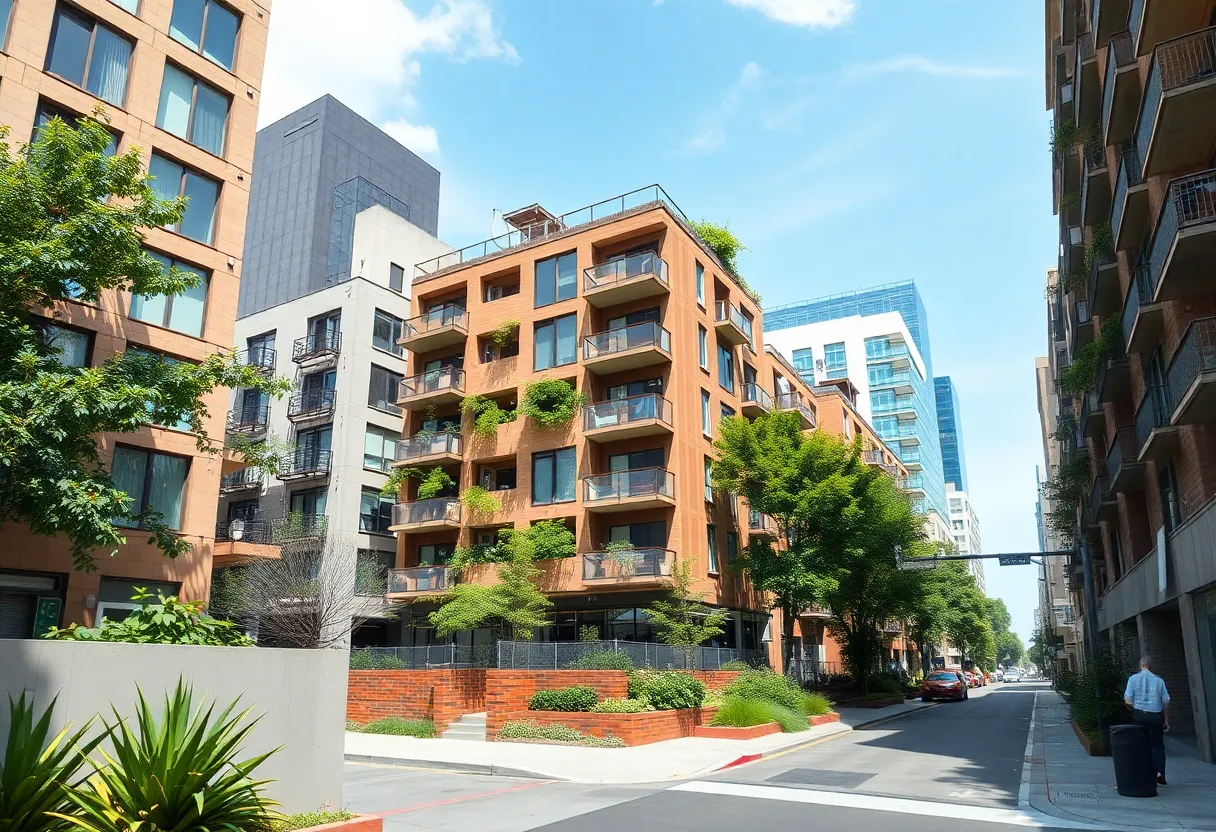News Summary
In a landmark decision, a federal judge has prohibited no-warrant, race-based immigration stops by ICE and Border Patrol in Los Angeles. This ruling follows increased public protests and lawsuits against practices that disproportionately affect Latino communities. Key measures include allowing detained individuals to consult legal counsel and barring detentions based solely on race or language. Despite concerns about ‘consensual encounters,’ community groups aim to support families affected by aggressive immigration raids. This ruling signifies a step towards more equitable enforcement practices in immigration.
Los Angeles – In a significant legal ruling, a federal judge has issued an order that halts no-warrant, race-based immigration stops conducted by Immigration and Customs Enforcement (ICE) and Border Patrol agents in Los Angeles. The decision marks a response to growing public protests and legal challenges against the agency’s aggressive tactics that disproportionately impact Latino communities in Southern California.
The court’s ruling, delivered by Judge Maame Ewusi-Mensah Frimpong, includes two key temporary restraining orders. The first allows individuals who are detained to consult with legal counsel, ensuring they have the necessary support during encounters with immigration enforcement. The second order explicitly prohibits detentions based solely on a person’s race, language, or workplace type, signaling a move towards more equitable enforcement practices.
Despite this ruling, ICE and Border Patrol agents maintain the ability to engage in “consensual encounters” with individuals they approach on the streets. Legal experts clarify that for an encounter to be genuinely consensual, individuals must have a clear option to refuse engagement with law enforcement. However, advocacy groups highlight concerns regarding the nature of these interactions, emphasizing that armed agents may create a sense of intimidation, which undermines the essence of true consent.
Officer tactics often involve deceptive questioning methods aimed at persuading individuals to divulge information, raising ethical concerns about the legitimacy of these interactions. A growing coalition of organizations, including the American Civil Liberties Union (ACLU), has filed a lawsuit against the Department of Homeland Security (DHS), alleging that these racial profiling practices violate the rights of vulnerable immigrant populations.
The backdrop to these legal battles is the aggressive immigration raids initiated by ICE in Southern California since June 2025. Reports indicate that approximately 2,792 arrests were made in the Los Angeles area alone during these operations, instilling significant fear within immigrant communities and sparking widespread protests against what many consider aggressive and racially charged tactics.
These raids have resulted in numerous abandoned properties, as individuals detained by ICE leave behind vehicles and work equipment without warning. Local advocacy networks are mobilizing to assist families affected by these actions, helping them reclaim abandoned property and providing crucial legal information regarding their rights.
Community groups have reported heightened efforts to coordinate responses to ongoing raids and to aid those impacted, thereby supporting families in navigating their legal options following arrests. A substantial portion of those arrested has been foreign-born, many originating from Central American countries, thereby increasing the urgency for community support and advocacy.
The ruling intersects with broader concerns surrounding the Immigration and Customs Enforcement’s methods, particularly their targeting of low-wage workers, who are at a heightened risk of deportation during these raids. Ongoing efforts by community organizations include providing immediate legal and social assistance to families with detained members, ensuring they are aware of their rights and available resources amid the turmoil.
Despite the temporary measures imposed by the court, the situation for many residing in these communities remains challenging. Families have reported significant difficulties in reclaiming property left behind after ICE operations, compounding their already precarious circumstances. The emphasis remains on building a robust system of support for those affected by ICE’s enforcement practices, as well as on ensuring that racial profiling in immigration enforcement becomes a relic of the past.
In this evolving landscape, the recent judicial ruling represents a critical stand against race-based immigration enforcement, reflecting the ongoing dialogues around civil rights and human dignity for all individuals within the United States.
Deeper Dive: News & Info About This Topic
HERE Resources
Outrage Over Children in Chains at Federal Facility
Los Angeles Immigration Enforcement Impacts Local Businesses
Rick Cole Steps Down from Los Angeles City Leadership
Violent Clashes Erupt During Federal Raid on Cannabis Farm
Federal Judge Blocks Racial Profiling in Immigration Raids
Bishop Dispensates Catholics from Weekly Mass Amid Immigration Fears
Mayor Bass Defends Los Angeles Sanctuary Policies Amid Lawsuit
Santa Monica Protests Against Stephen Miller’s Immigration Policies
Community Mobilizes in Los Angeles Amid Rising Immigration Raids
Cole’s French Dip Closes After Over a Century of Service
Additional Resources
- Los Angeles Times: Abandoned Items Post-ICE Raids
- Wikipedia: Immigration and Customs Enforcement
- Associated Press: ICE Immigration Raids in Los Angeles
- Google Search: ICE Immigration Raids Los Angeles
- NBC News: Shifting Tactics of Protesters Against ICE Detentions
- Google Scholar: ICE Raids Protests Los Angeles
- CNN: Protests Against ICE Raids in Los Angeles
- Encyclopedia Britannica: ICE Detentions
- Los Angeles Times: Federal Arrests in LA
- Google News: ICE Detention Protests Los Angeles

Author: STAFF HERE HOLLYWOOD
The Hollywood Staff Writer represents the experienced team at HEREHollywood.com, your go-to source for actionable local news and information in Hollywood, Los Angeles County, and beyond. Specializing in "news you can use," we cover essential topics like product reviews for personal and business needs, local business directories, politics, real estate trends, neighborhood insights, and state news affecting the area—with deep expertise drawn from years of dedicated reporting and strong community input, including local press releases and business updates. We deliver top reporting on high-value events such as the Hollywood Bowl summer concerts, the Hollywood Christmas Parade, film premieres at TCL Chinese Theatre, and festivals at the Magic Castle. Our coverage extends to key organizations like the Hollywood Chamber of Commerce and Visit Hollywood, plus leading businesses in entertainment, dining, and tourism that define the local economy. As part of the broader HERE network, including HERELosAngeles.com, HEREBeverlyHills.com, HEREAnaheim.com, and HEREHuntingtonBeach.com, we provide comprehensive, credible insights into Southern California's dynamic landscape.





